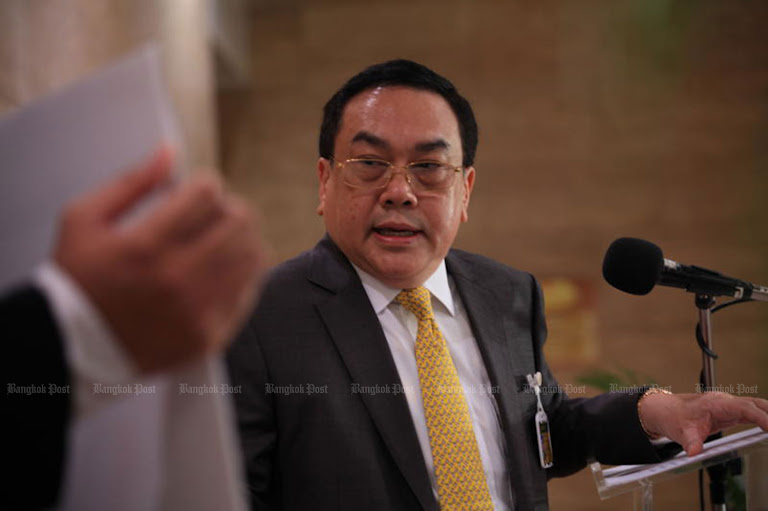Thailand Ex-Senator Sues MP: “You Defamed Me!”
Ex-senator, cleared of money laundering tied to a Myanmar national, now accuses a parliamentarian of defamation for public allegations.

The line between political accountability and outright defamation is a precarious one, particularly in nascent democracies where institutions are still solidifying and the public sphere is often a battleground of accusations. The recent acquittal of former Thai senator Upakit Pachariyangkun on money laundering charges, as reported by the Bangkok Post [[here](https://www.bangkokpost.com/thailand/politics/3036662/ex-senator-to-sue-mp-following-acquittal)], and his subsequent intent to sue People’s Party MP Rangsiman Rome for defamation, throws this tension into stark relief. This case isn’t just about individual reputations; it highlights deeper systemic issues regarding the role of legislators, the burden of proof in corruption allegations, and the weaponization of legal processes.
Rome’s initial accusations, leveled during a general debate in the House of Representatives back in 2023, clearly struck a nerve. The core of Upakit’s complaint rests on the alleged damage to his reputation stemming from being linked to illicit activities. His acquittal, in the eyes of the court, seemingly clears him of directly participating in the network linked to Myanmar national Tun Min Latt, who himself was arrested on drug trafficking and money laundering charges. Crucially, the court found insufficient evidence connecting Upakit to the financial transactions of Latt’s businesses, despite their documented business relationship.
The question, of course, is not merely whether Upakit committed a crime in the strictest legal sense, but whether Rome’s allegations—and the “incriminating nickname” that accompanied them—had a reasonable basis at the time they were made. This shifts the focus onto the ethical obligations of elected officials in a system where transparency and accountability are paramount, but where accusations can easily become tools for political maneuvering.
Consider these intertwined threads:
- The Privilege of Parliament: Legislators often operate with a degree of immunity when making statements during official proceedings. This privilege is designed to foster robust debate and fearless scrutiny of government officials and powerful interests. But where does legitimate scrutiny end and defamation begin?
- The Burden of Proof: In a courtroom, the prosecution must prove guilt beyond a reasonable doubt. However, in the court of public opinion, the threshold is often far lower. Rome’s allegations, even if unsubstantiated in a legal sense, may have had a lasting impact on Upakit’s public image.
- The Chilling Effect: Lawsuits like the one Upakit intends to pursue can have a chilling effect on free speech, discouraging other politicians and journalists from raising uncomfortable questions about powerful individuals and potential corruption.
“The danger lies in creating a system where fear of legal reprisal stifles legitimate investigation and public discourse, ultimately eroding the very foundations of a transparent and accountable government.”
This case inevitably raises broader questions about the power dynamics in Thai politics. The military’s ongoing influence, the role of wealthy elites, and the fragility of democratic institutions are all factors that contribute to a climate where accusations of corruption—whether proven or not—can have significant political consequences. The fact that one of those arrested alongside Tun Min Latt was Upakit’s son-in-law undoubtedly added fuel to the fire, regardless of the legal outcome.
Ultimately, the Upakit-Rome case is a microcosm of the challenges faced by democracies globally: how to balance the need for accountability with the protection of individual rights, and how to ensure that legal processes are not used to silence dissent or suppress legitimate inquiry. This particular instance, stemming from events documented by the Bangkok Post, will be closely watched as it unfolds, its impact resonating far beyond the individuals directly involved.









